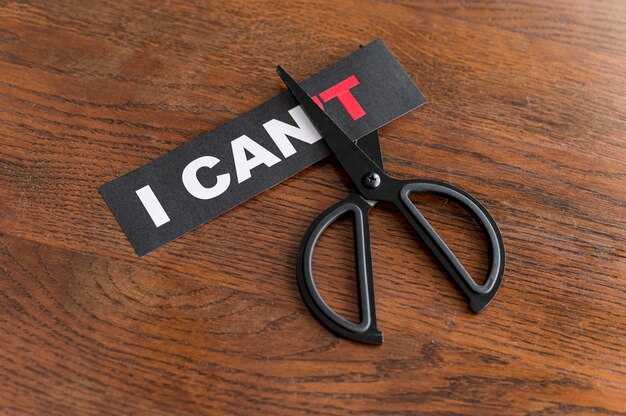Okay, this is a little bit of a rant, but whenever I try to offer relationship guidance — even when I start by saying that healthy partnerships rest on mutual respect, trust, and effort from both people — there are always a few comments insisting, “That won’t work with narcissists.” And they’re right in a way: typical advice won’t fix a narcissist, because if someone is convinced they already know everything, they don’t need counsel. Perhaps we should simply acknowledge that narcissism is fundamentally incompatible with real relationships. Intimacy can’t develop with someone who only cares about themselves; a genuine connection is impossible when the other person seeks to control or manipulate you. Mutual respect can’t exist when one partner assumes all the power and decides whether your feelings are valid. You can’t build closeness with someone who lies repeatedly or blames you for every problem in their life.
Frankly, I’m less interested in “fixing” them and more invested in making sure you understand that being put down or demeaned is not acceptable. I want you to know your worth and that you deserve kindness and respect. You are not crazy, and you are not asking too much by expecting the most basic human decency. We can feel compassion for someone’s traumatic background, but that doesn’t justify losing ourselves to keep the peace. We can’t live tiptoeing around them or measure our value by how they see us. Remember: the right person for you won’t leave you bewildered all the time, won’t try to convince you that you’re the problem, and won’t tell you that nobody would want you if you left. The right person may not be flawless, but they want you to feel safe, respected, and cared for. They’ll make mistakes, yet they’ll care about how their actions affect you, feel remorse, and try to repair the hurt or disconnection they caused — even while they keep growing, like the rest of us. Maybe the real audience for some of this advice isn’t the narcissist at all, but us.
How to protect yourself and move forward
If you suspect you’re in a relationship with someone who shows narcissistic patterns, here are practical, concrete steps you can take to protect your emotional and physical well‑being and to make clearer decisions about the relationship.
Recognize common red flags
- Chronic lack of empathy: they dismiss or minimize your feelings.
- Constant need for admiration and special treatment.
- Gaslighting: they deny reality, blame you for things you didn’t do, or make you doubt your memory or perception.
- Entitlement and boundary violations: they expect you to accommodate them without reciprocity.
- Projection and blame: they accuse you of behaviors they themselves display.
- Extreme sensitivity to criticism followed by rage, withdrawal, or punitive behavior.
- Pattern of short-lived relationships, serial romanticizing/devaluing, or chaotic friendships and work relationships.
Clear, practical boundary strategies
Boundaries are not punishment — they are safety tools. Use direct, simple statements and follow through with consequences if boundaries are ignored.
- Examples of brief boundary statements:
- “I won’t accept being yelled at. If you raise your voice, I will leave this room.”
- “I hear you. I won’t continue this conversation while you call me names.”
- “I’m not available to fix this for you tonight. We can revisit it tomorrow.”
- Keep responses unemotional and factual when confronted with manipulation. Repeating a short phrase like “That’s not acceptable to me” is often more effective than arguing.
- Document important conversations, incidents, and patterns — dates, what happened, and witnesses — especially if you anticipate needing proof later for legal or custody reasons.
How to respond to gaslighting
- Avoid trying to “prove” your reality in long debates. State what you observed, how it affected you, and your boundary: “When X happened, I felt Y. I will not….”
- Keep copies of messages, emails, or screenshots that demonstrate patterns of behavior.
- Lean on trusted friends or a therapist who can validate your experience and help you maintain perspective.
Deciding whether to stay — realistic expectations
People with narcissistic traits can sometimes change in meaningful ways if they genuinely commit to long-term therapy and take responsibility, but that change is slow and requires consistent accountability. Don’t rely on promises or charm. Evaluate behavior over time: remorse must be followed by sustained differences in actions.
If you choose to stay, prioritize your own therapy, clear boundaries, and an external support network. Couples therapy can help only when there is genuine willingness to examine one’s role and patterns — and it should be done with a therapist experienced in abuse dynamics and personality disorders.
When to seek immediate help
- If you feel unsafe, threatened, stalked, or physically harmed, contact local emergency services or a domestic violence hotline immediately.
- If there is ongoing emotional or financial control, create a safety plan: trusted contacts, emergency funds, copies of important documents, and a clear exit route.
- Consider legal advice about custody, restraining orders, or financial protections when necessary.
Self-care and recovery
- Find a therapist who practices trauma‑informed care; healing from a relationship with a manipulative partner often involves addressing anxiety, depression, or codependency.
- Join peer support groups or communities where people understand narcissistic abuse and recovery — validation reduces isolation and speeds healing.
- Rebuild routines that reinforce autonomy: finances, hobbies, social connections, and regular sleep and exercise.
Co‑parenting with a narcissistic ex

Protecting children is a priority. Keep communication focused on facts and the children’s needs, use written communication that can be documented when possible, and avoid emotional engagement during exchanges. If manipulation or alienation occurs, consult a family attorney and consider parallel parenting strategies or supervised visitation when recommended by a professional.
Practical next steps checklist
- Write down the behaviors that concern you and how they affect you.
- Establish and communicate one or two clear boundaries today.
- Line up a therapist, a trusted friend, or a support group for validation and planning.
- Secure copies of important documents and, if needed, open a personal bank account or emergency fund.
- Create a safety plan if you feel at risk.
Recommended resources (books and authors)
- “Disarming the Narcissist” — Wendy T. Behary (strategies for managing interactions)
- “Will I Ever Be Free of You?” — Karyl McBride (healing after narcissistic relationships)
- Dr. Ramani Durvasula — work and media on narcissism and decision-making around relationships (look for her book and talks)
- “The Narcissist You Know” — Joseph Burgo (profiles of narcissistic behaviors)
Also seek local domestic violence and mental health resources for immediate or specialized support. If you’re unsure where to start, a licensed therapist or local community mental health center can often point you to appropriate services and hotlines in your area.
Ultimately, you don’t have to be the person who fixes someone else at the cost of your own dignity and safety. Your responsibility is to yourself: to recognize harmful patterns, protect your boundaries, and choose relationships that reflect the respect and care you deserve.


 Advice Doesn’t WORK on Narcissists">
Advice Doesn’t WORK on Narcissists">

 Relationship EXPERT reveals Secrets to Connection: Dr. Sue Johnson">
Relationship EXPERT reveals Secrets to Connection: Dr. Sue Johnson">
 Are You Surrounded by Bullies? The Hidden Reason You Let Them In">
Are You Surrounded by Bullies? The Hidden Reason You Let Them In">
 Your Partner’s Behavior is Trauma-Related, But It’s Still Not OK">
Your Partner’s Behavior is Trauma-Related, But It’s Still Not OK">
 The STRONGEST Sign An Avoidant Still Loves You Deeply">
The STRONGEST Sign An Avoidant Still Loves You Deeply">
 If You Shut Down During Conflict, Watch This">
If You Shut Down During Conflict, Watch This">
 Se Seu Parceiro Disse Essas Frases, Ele é um Evitativo">
Se Seu Parceiro Disse Essas Frases, Ele é um Evitativo">
 Até Que Esta Mudança Finalmente Fez o Evitativo Voltar | Discurso Motivacional de Mel Robbins">
Até Que Esta Mudança Finalmente Fez o Evitativo Voltar | Discurso Motivacional de Mel Robbins">
 Para a Cura, a Ação Sã é Mais Poderosa do que Histórias Tristes">
Para a Cura, a Ação Sã é Mais Poderosa do que Histórias Tristes">
 Um parceiro precisa saber sobre o seu passado — mas o que acontece se você está apenas namorando?">
Um parceiro precisa saber sobre o seu passado — mas o que acontece se você está apenas namorando?">
 TRAFICO é para COWARDES EGOÍSTAS (como eu)">
TRAFICO é para COWARDES EGOÍSTAS (como eu)">